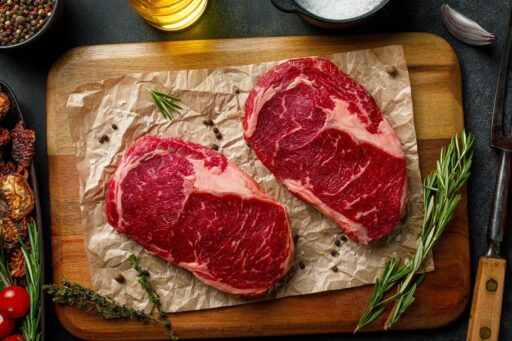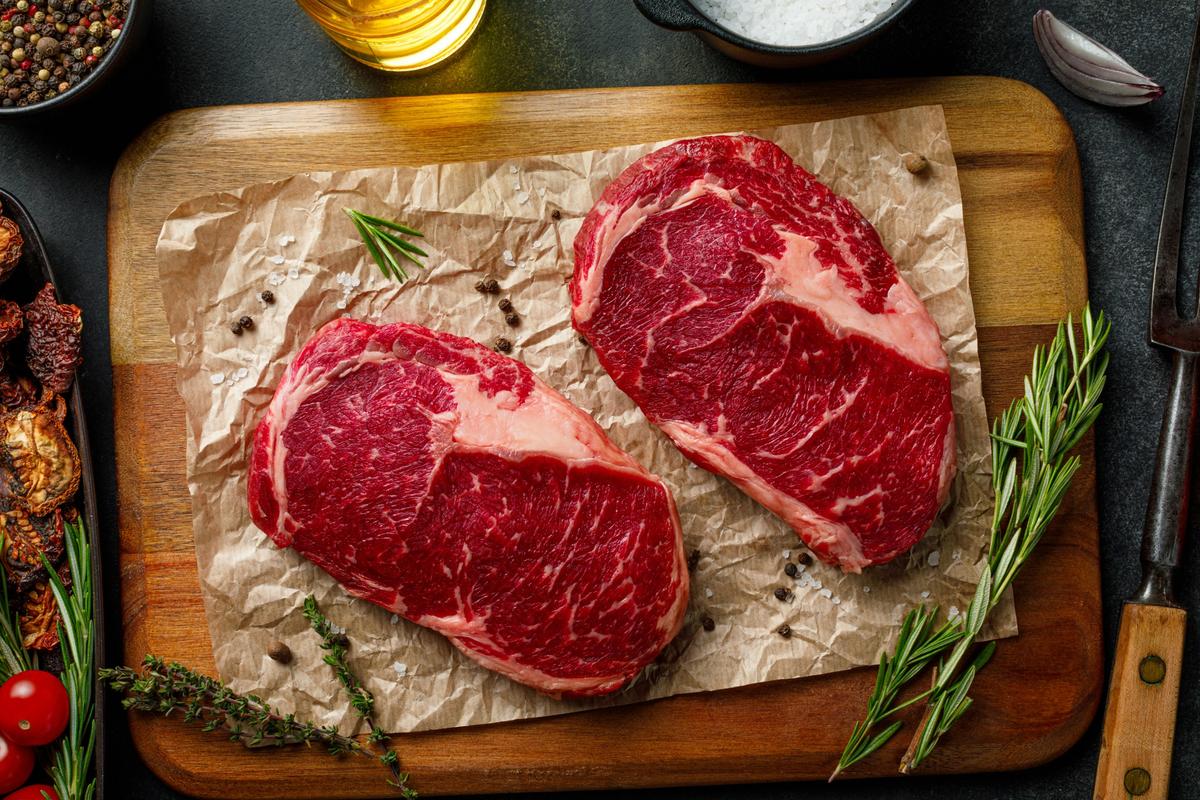Sirloin Steak Nutrition Facts: Is It Really a Lean, Healthy Protein?
Healthy’s Summary
Craving steak but trying to eat smarter? You’re not alone. Sirloin is often called the “lean” steak option—but how does it actually stack up nutritionally? Spoiler: sirloin steak nutrition looks surprisingly balanced—especially when you compare it to other cuts of beef.
In this article, we’ll break down exactly what you’re getting with each bite of sirloin: from protein and fat to vitamins and iron. You’ll learn which type of sirloin is leanest, how it fits into a heart-healthy diet, and what to pair it with for maximum nutritional benefit.
Whether you’re meal-prepping for muscle gains, managing your cholesterol, or just curious about the numbers, we’ve got you.
What Are the Sirloin Steak Nutrition Facts?
Let’s start with the numbers for sirloin steak nutrition facts. A 3-ounce serving of cooked top sirloin steak (no visible fat, grilled) typically contains:
- Calories: 150–180
- Protein: 22–26 grams
- Total fat: 6–8 grams
- Saturated fat: 2–3 grams
- Cholesterol: 60–70 mg
- Iron: 2–2.5 mg (about 10–15% of daily needs)
- Zinc: 4–5 mg (roughly 35–45% of your daily needs)
- Vitamin B12: ~1.5 mcg (over 60% of the daily value)
What does that all mean? Sirloin steak nutrition is protein-rich and packed with important nutrients like iron, zinc, and B12—all essential for energy, immune function, and red blood cell production. Compared to fattier cuts like ribeye, sirloin has less saturated fat, which is better for heart health if you’re watching your cholesterol.
Is Sirloin Steak a Good Choice for a Healthy Diet?
In most cases—yes. Sirloin is considered one of the leaner beef options, especially if you go for top sirloin or sirloin tip and trim away any visible fat.
Here’s why sirloin steak nutrition often wins out:
- High in protein: Great for muscle repair and satiety
- Lower in saturated fat: Better for heart health
- Naturally rich in iron and B vitamins: Especially important for people with anemia or fatigue
That said, portion control still matters. A restaurant sirloin steak might weigh 8 to 12 ounces—far more than the 3–4 ounces recommended by heart health guidelines. It’s not just what you eat, but how much and how often.
And remember, the nutrition can shift depending on how you cook it. Grilling, broiling, or air frying keeps the fat down. Pan-frying with butter or oil? Not so much.
Ask Healthy
How Do Sirloin Steak Nutrition Facts Compare to Other Proteins?
Here’s a quick comparison of sirloin steak nutrition with other common proteins (per 3-ounce cooked serving):
| Protein Source | Calories | Protein (g) | Saturated Fat (g) |
| Top Sirloin Steak | 170 | 24 | 2.5 |
| Skinless Chicken Breast | 140 | 26 | 1.0 |
| Salmon (Atlantic) | 180 | 22 | 2.1 |
| Tofu (firm) | 120 | 11 | 0.5 |
| Lentils (cooked) | 115 | 9 | 0.1 |
Sirloin falls right in the middle—higher in protein than plant-based options, leaner than many other red meats, but still more saturated fat than poultry or legumes. That doesn’t make it “bad”—just something to rotate rather than rely on daily.
You can also try comparing the nutrition facts of sirloin steak to ground beef with our other article: Ground Beef Nutrition Facts: What You Should Know (Whether You’re Cooking for One or Feeding a Family)
A Final Thought
When it comes to sirloin steak nutrition, you’re getting a high-protein, micronutrient-rich food with less fat than other red meat options. It can absolutely be part of a healthy, balanced diet—especially if you’re mindful of portion size and prep method. Whether you’re building muscle or watching your cholesterol, sirloin offers a satisfying middle ground between flavor and function.
Want to dig deeper?
Take Charge of Your Heart Health
Caring for your heart is one of the most impactful steps you can take for your overall health. “Take Charge of Your Heart Health” helps you track vital metrics, manage lifestyle changes, and build heart-healthy habits. From improving diet to tracking exercise, and stress levels, this program empowers you with coaching to reduce risk factors and promote a strong, healthy heart. This program provides general guidance to support heart health, not personalized medical advice. If you have existing health conditions or concerns — especially related to heart health — it’s a good idea to consult with a healthcare provider before starting any new activity.
Enroll in one of Healthy’s Programs to log, track and learn more about your Health, one conversation at a time.
Learn More




